Laura Sims, author of “Looker,” recommends books about the corrosive effects of jealousy
Envy thrives in our screen-saturated age. Images of celebrities and others who seem to have it all are just a finger-swipe away. But envy is nothing new, of course. While movies and TV shows like Ingrid Goes West and Black Mirror have recently been exploring the digital realm for manifestations of envy, writers have been focusing on this singular disease for centuries. The mix of contemporary and classic books below, for instance, all provide potent examples of how envy can corrode and corrupt human happiness, often causing significant destruction and sometimes even loss of life.
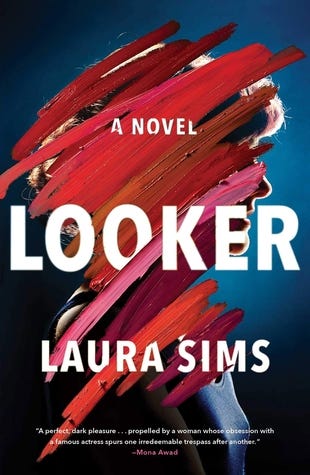
The narrator of my own envy-centered novel, Looker, lives a few houses down from a famous actress and her family, and as her life falls into ruin, she begins to look increasingly toward this woman with a seemingly picture-perfect existence. My troubled narrator’s looking sparks what becomes an all-consuming and terrible obsession. In the midst of her downward spiral, she longs for ancient times, “when what mattered was shielding our tribe from saber-toothed tigers. Giant Bears. There were actual dangers then.” This longing, though, is part of her delusional state of mind; wouldn’t one young warrior have envied another’s skill with the spear? Or his giant bear body count? Envy is as ancient as the world she describes.

Envy by Yuri Olesha
The fictional primer on envy, Soviet-style. While most envy-focused books tend toward darkness and despair, Olesha’s showcases this particular human weakness with biting satire, absurdity, and wit. Envy pits two characters at opposite ends of the social spectrum against one another: Andrei, a successful Soviet citizen with big plans for mass-producing sausage, and Nikolai, a down-and-out reject who resents Andrei for literally lifting him out of the gutter and giving him gainful employment. As Nikolai plots to ruin Andrei’s sausage-based success, the two tangle in ways that are both hilarious and heartbreakingly real.
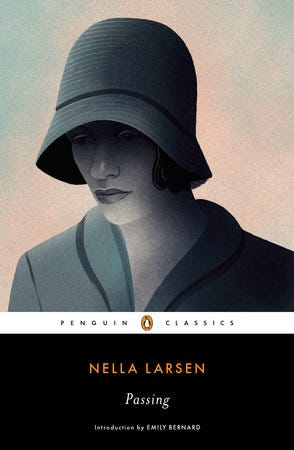
Passing by Nella Larsen
The fraught bond between a pair of childhood friends animates this gripping novel by Nella Larsen, set in 1920s New York City. One of the friends, Irene, can pass for white when necessity dictates, but her life is in Harlem with her visibly black husband and sons. Clare, on the other hand, is married to a white man who doesn’t know the truth about her identity. The trouble begins when Clare returns to Irene’s life and begins to covet what she has, making an ill-conceived return to Harlem society. Before long, Clare’s reckless covetousness leads to irrevocable tragedy.
In Nella Larsen’s ‘Passing,’ Whiteness Isn’t Just About Race
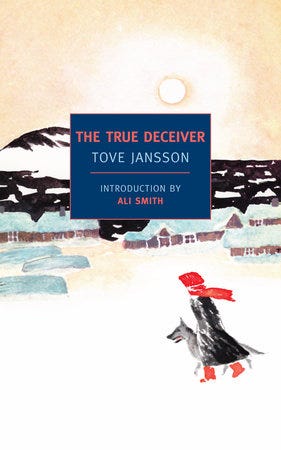
The True Deceiver by Tove Jansson
Sometimes envy can be a quiet, slow-burning, and even practical thing. This is the case in The True Deceiver, which focuses on the drama between two women in a small snowbound village: Anna, a wealthy, reclusive artist who lives alone in a sprawling home, and Katri, a village oddball who needs a home for herself and her dependent adult brother. Katri sets her sights on Anna’s house and insinuates herself into the artist’s life, refusing to employ social niceties to achieve her goal; she looks down on “the whole sloppy, disgusting machinery that people engage in with impunity all the time everywhere to help them get what they want.” Anna is her exact opposite in that regard, being utterly subservient to social niceties. The two women collide in this fascinating study of character and its consequences.
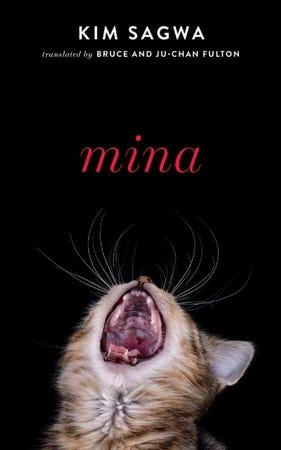
Mina by Kim Sagwa
Kim Sagwa’s Mina is many things: a twisted love story; a story of obsession, envy, and rage; a portrait of madness and murder; and a scathing look at contemporary urban life in Korea — its demands and pressures, as well as their consequences. Crystal, a teen who struggles endlessly to earn the grades she’ll need to succeed, envies Mina for her effortless excellence, and eventually turns on the girl who has been her best friend. The ending, which comes as a bright splash of violence, is the natural result of the societal forces that have made Crystal what she is: a scary, solipsistic denizen of the current and future Western-influenced world, where money, “success,” and surface appearances reign supreme.
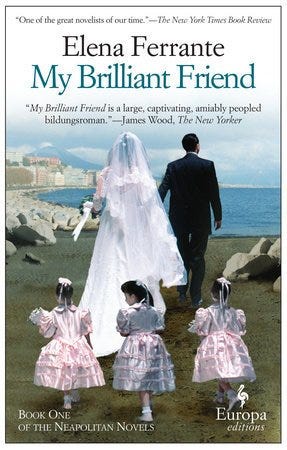
My Brilliant Friend by Elena Ferrante
It feels reductive to call the intricately layered, nearly symbiotic, lifelong friendship between Lila and Elena of Ferrante’s Neapolitan Novels, simply “envious.” But envy is certainly part of what drives them alternately closer and apart. The two circle each other all their lives, desiring what the other has and indulging, at times, in subtle sabotage. Lila, for instance, tries to ruin Elena’s chance for the further education she herself has been denied; when the girls skip school (at her urging), she seems disappointed when Elena’s parents don’t pull her from middle school as punishment. “’All they did was beat you?’” she asks. Ferrante captures the knotted complexities of female friendship with grace, skill, and absorbingly stark realism.
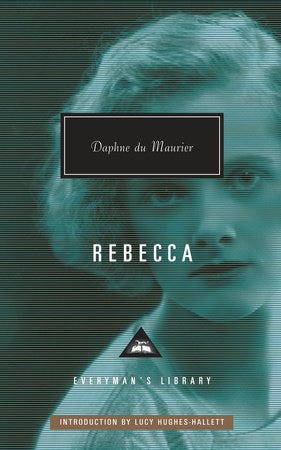
Rebecca by Daphne du Maurier
The best possible outcome of envying someone may be learning they are utterly unworthy of your envy. Rebecca gives that particular gift to the unnamed narrator, who steps uneasily into her role as the second wife of wealthy Maxim de Winter. At first, she fixates on what she hears of her predecessor: beautiful, elegant, beloved and seemingly perfect Rebecca. She’s troubled when people tell her: “You see…you are so very different from Rebecca.” But as the melodrama unwinds, our narrator learns that might in fact be a very good thing.
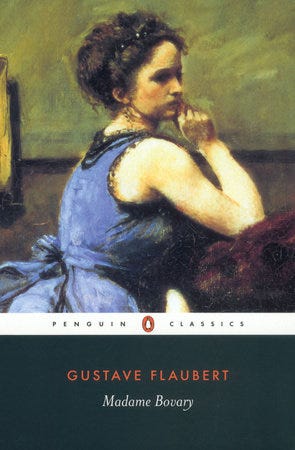
Madame Bovary by Gustave Flaubert
Emma Bovary: perhaps the most famous of all literary enviers. She desires a life rich in glamour and excitement, one that could have leapt from the pages of the romance novels she devours. Her real life, with husband Charles, is something to barely tolerate…until she tolerates it no more. “It was above all at mealtimes that she could bear it no longer, in that little room on the ground floor, with the smoking stove, the creaking door, the oozing walls, the damp floor-tiles; all the bitterness of life seemed to be served to her on her plate.” In Flaubert’s masterpiece, Emma’s journey from ardently longing for a different life to acting on her imagined passions secures her a dark, cruelly banal fate.

About the Author
Laura Sims is the author of Looker, a novel; four books of poetry, most recently Staying Alive; and the editor of Fare Forward: Letters from David Markson. She lives outside of New York City with her family.


7 Novels About Envy was originally published in Electric Literature on Medium, where people are continuing the conversation by highlighting and responding to this story.
Source : 7 Novels About Envy














